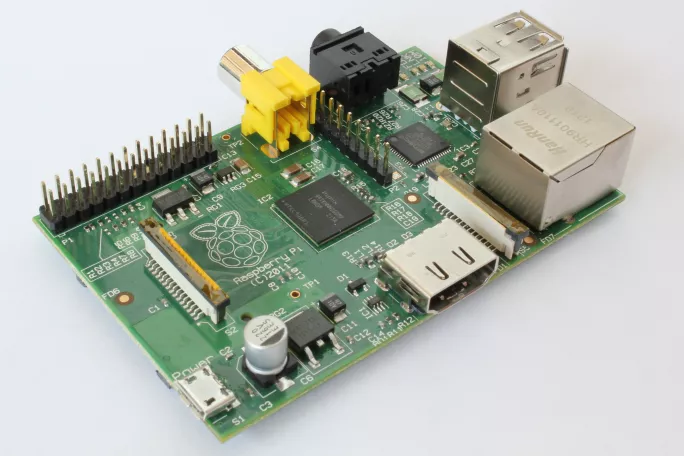‘Get students solving real-world problems to produce tomorrow’s creative technologists’
Anita Chandraker, head of IT delivery at PA Consulting Group and Clive Beale, director of educational development at the Raspberry Pi Foundation, write:
Innovation through information technology is vital for the future of the UK economy. The business secretary Vince Cable, among others, has talked about building an economy based on innovation, for which we need a workforce with the right skills.
Creative technologists are the lifeblood of business and there is increasing competition for new talent.
A recent study by the UK Council of Professors and Heads of Computing shows that, while demand for IT professionals will grow by up to 15 per cent in the next eight years, the number of students aiming for jobs in the industry has fallen by 50 per cent since 2001.
These findings tally with official figures released by the Department for Business, Innovation and Skills that show the number of undergraduates studying computer science dropped by almost one-quarter between 2002 and 2013.
For the next wave of creative technologists to come through, we need to encourage a passion for innovation at an early age. This will take much more than just getting children to engage with new technology.
A recent report by Ofcom found that 42 per cent of children use tablets and spend as much time using the internet as they do watching television. In fact, the real problem is that too few children know how a computer works or understand the basics of computer science. In the 1980s, we had the ZX Spectrum and the BBC Micro, which relied on the user learning how to program and inspired a generation to take up computer science. Today, as the demand for technical IT skills increases, children are mostly just familiar with the interface.
So, how can we plug the gap?
It is certainly true that the Department for Education will play an integral role and we are seeing positive signs that this is happening. In this academic year, England’s new programme of study aims for children to be “enthused by the possibilities” of computing by teaching them the basics from the age of five. But we would argue that, while having programming on the curriculum will make a huge difference, it will not in itself be enough. To inspire children to become the creative technologists of tomorrow, we need to ignite a deep-seated passion for innovation and invention.
At PA and the Raspberry Pi Foundation, we have found that an extremely effective way of inspiring children is to help them realise that physical computing - using computing, including coding, to solve a problem - gives them the power and responsibility to achieve things they might not otherwise have thought possible. When they see that computing can enable them to make a real difference to the world at a very early age - and have fun while they are doing it - their enthusiasm skyrockets.
In particular, the challenge of solving real-world problems can be the spark that captures young people’s imaginations. This has been the focus for our joint competition, which is now in its third year. Since the competition began, we have challenged school and university students to use their computing and problem-solving skills to invent solutions in response to themes such as “make the world a better place”, “benefit the environment” and - in this year’s competition - “help people live healthier lives”.
As a result, we have seen a robot to help with the household recycling, an automatic pill dispenser, a forest fire detector and a device to help less-mobile people answer their front door - all invented by teams of schoolchildren. We have seen an air quality and weather surveillance station made with a Raspberry Pi that takes in information about air quality through attached sensors and uploads it directly to the internet, where it can then be viewed and analysed on a smartphone or tablet. This particular creation has since been commercialised.
Through our competitions, it is clear that, when motivated to invent and innovate, there is absolutely no shortage of ideas coming from children. Throughout, the quality of inventions has impressed all those involved and the energy of the teams has really stood out - they have talked passionately and knowledgeably about their projects.
So the challenge for schools, as we see it, is to go beyond what’s on the curriculum and invest the time and energy required to help their pupils use programming to achieve practical, real-world results. We recognise the limitations in schools’ resources; one way to overcome this could be to look into new partnerships with businesses, particularly in the technology and innovation industries.
In doing so, schools could access additional support while being able to demonstrate how innovation is crucial to a commercial organisation. They could also show how information technology has a real-world bearing on the products we buy and the services we use. As in our competitions, this would inspire children by demonstrating how they can make a real difference to the world by learning how to use computational thinking.
If schools can channel that excitement for solving real-world problems into a long-term interest in innovation, the UK will have no shortage of creative technologists in the future.
As one of the teenage inventors of the award-winning air-quality monitor said, “It’s been amazing to work on such a project.” The huge interest that we are seeing in our 2015 competition - primarily from after-school clubs led by inspirational teachers - suggests that he is not the only one to feel this way.
Keep reading for just £1 per month
You've reached your limit of free articles this month. Subscribe for £1 per month for three months and get:
- Unlimited access to all Tes magazine content
- Exclusive subscriber-only stories
- Award-winning email newsletters




